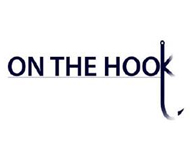
The MSC has been criticized in a newly launched campaign for “planning to re-certify the world’s largest tuna fishery,” in the PNA. ‘On The Hook’, representing a group of various organizations states that “major UK brands” are against the recertification, however it’s not totally clear which these brands are. The MSC has reacted, believing the claims made against it are “misleading and false.”
A press release from On The Hook, which has been formed in part by World Wise Foods, one of the largest suppliers of pole and line tuna to the UK market, as well as US pole and line brand, American Tuna, retailer Woolworths South Africa, and NGOs including Shark Project and Forest and Bird, notes that “major UK brands fight against “blue tick” for the world’s largest tuna fishery.”
At the center of their campaign is the claim that within the PNA tuna fishery, “a fishing vessel and crew can use the same gear (purse seine) one day to fish tuna sustainably (by free-school), receiving the MSC certification, and then on the same trip be hauling turtles, sharks, juvenile tuna and other protected species unsustainably (using FADs).”
Although it’s noted by On The Hook that big UK brands are supporting this argument, there are two leading canned tuna brands in the UK market; John West, which is not listed as an On the Hook member, and Princes, which is actually criticized in the press release for “distributing this tuna to the UK’s largest supermarket.” This therefore puts into question which “Major UK brands” the release is referring to.
Despite the fact that the regular five year MSC reassessment of the PNA free-school skipjack and yellowfin fishery is still under review of the Certification Assessment Body (CAB), Acoura Marine, which recently called for stakeholder comment on its draft report, it seems that On the Hook already believes that MSC is “planning to re-certify”.
“On the Hook seeks to urgently prevent MSC re-certifying PNA,” the release reads. “They believe MSC are “betraying the trust” of the consumers saying that it is not acceptable for consumers to be “duped” into buying a premium product that has been certified sustainable, when all they need to do is scratch the surface and find unsustainable practices”.
It’s added that the MSC website states that when you see seafood with the blue MSC label, you can be sure it comes from a sustainable fishery. The release however states that “On the Hook no longer believe this to be the case.” While this doubt is related specifically to the PNA, such a statement could stretch to question other MSC certified tuna fisheries, including the pole and line skipjack fishery in the Maldives, which some On the Hook members are involved in supplying to major UK retailers.
Pacifical, the marketing arm of MSC certified tuna coming from the region, has defended the MSC certification of the PNA fishery, stressing that the strict Chain of Custody (CoC), teamed with 100 percent observer coverage, guarantees that there is no mixture of certified and uncertified catch on board any purse seiner.
With PNA being criticized on the mixed operations within its fishery, Pacifical has contacted the MSC Board to explain this stringent CoC extensively and the procedures behind it that ensure strict separation of catch on board and right through until the processing plant, and therefore in the product.
The MSC has responded to the launch of this campaign, and told Atuna that it is disappointing to see “these misleading and false claims, and strongly rejects the accusation of duping consumers…Consumers can be confident that our ‘blue tick’ label indicates a fish has been responsibly caught and is fully traceable to a sustainable source.”
It’s added by MSC that the PNA tuna fishery achieved MSC certification following an in-depth assessment by an independent certification body. It is now undergoing full reassessment, which is required every five years for all fisheries in the MSC program. It stresses that assessments are conducted by independent third parties, not the MSC itself. “An assessment to the MSC standard includes opportunities for stakeholder comments, peer review and an objection process, overseen by an independent adjudicator.”
Princes has also reacted to the campaign, informing Atuna that it “is fully committed to the long term sustainability of the tuna used in all of its products…Princes currently sources MSC certified tuna from the PNA Western and Central Pacific FAD-free tuna fishery. This fishery has been independently assessed against the MSC standard and the MSC has affirmed its certification of this sustainable source.”
MSC acknowledges that some stakeholders have raised concerns relating to the use of multiple fishing techniques to catch certified and non-certified products from the same boat. These concerns were discussed and listened to during a workshop organized by the MSC in June.” Since then, MSC has developed three potential options to address these concerns, which will now go for formal consultation from stakeholders from September 1st.
It’s noted that on the launch of this campaign, On the Hook has written collectively to the MSC asking, in the name of its members, for them to immediately halt the re-certification of the PNA and to urgently review the MSC standard.
There are a number of environmental NGOs that are listed as On the Hook members, however the major groups, WWF and Greenpeace are not mentioned in the letter, despite the latter having long been a strong supporter of pole and line caught tuna, which On the Hook participants are mostly involved in.
Although it will be looking at its system, David Agnew, MSC Science and Standards Director is confident already in the strength of the process. “Third-party scrutiny, independence, impartiality and stakeholder consultation are central to the MSC’s values and commitment to continually improve and maintain-world leading standards. “Shoppers and diners can continue to feel confident when buying seafood bearing our label that it has been caught responsibly and is fully traceable to a sustainable source.”
Article published by Atuna.com on August 31st, 2017